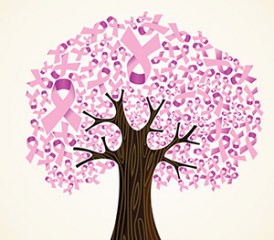Breast Cancer Survivor Ann Fonfa Offers Alternative Medicine Options for Mesothelioma Patients

Ann Fonfa is no expert on mesothelioma. She is a breast cancer survivor, but she does have something to offer anyone in a fight for their life against this dreaded disease caused by an exposure to asbestos.
She offers hope.
Fonfa has been a key national advocate for complementary and alternative medicine (CAM) for many years, often questioning the conventional but often-toxic treatments that doctors use regularly for different cancers, including mesothelioma.
She is living proof that her theory works.
Diagnosed with Stage IV breast cancer in 1993, Fonfa opted against the chemotherapy and radiation treatments that her doctors highly recommended after her mastectomy. Instead, she searched for alternative therapies that included Chinese herbs and high-dose Vitamin A mixes.
“It sucks that there isn’t enough research done for mesothelioma today, but that doesn’t mean you do nothing and just accept this no-hope diagnosis,” Fonfa told the Mesothelioma Center. “An alternative treatment won’t work all the time, but neither will conventional medicine. You should never, ever, just sit back and do nothing but accept what you’re dealt.”
Fonfa started the Annie Appleseed Project, a non-profit organization run entirely by volunteers. Based in Delray Beach, Florida, it sells nothing on its website and doesn’t endorse any particular treatment. It offers only ideas and alternative options that have worked for other cancer patients.
Its popularity has grown significantly since its inception in 1999, getting more than 2 million visitors to its website in 2010, she said. The Appleseed Project will be holdings its fifth annual convention in March, attracting speakers and patients from around the country.
Among those who have embraced her theories are Paul Krause, who is still living in Australia after being diagnosed with mesothelioma in 1997, and Larry Davis, a South Florida mesothelioma patient (diagnosed in 2007), who recently ran a triathlon in North Carolina.
Even with advances in conventional medicine, the typical mesothelioma diagnosis comes with a 6- to 18-month life expectancy. There is no known cure.
“I know it’s a really tough illness to beat, but it can be beat. There are options out there that people can try. You look at survivors like Paul and Larry and say what is it about them that made them unique. ‘If it worked for someone else, why can’t it work for me?’ “
Fonfa believes too many doctors lean too heavily on the pharmaceutical industry, which has no financial incentive to promote most of the alternative treatment options. And that medical science is too focused on trying to understand why something works instead of just admitting that it does work.
Her website is loaded with ideas on natural therapies, rejuvenating immune systems, lifestyle issues and treatments from a patient’s perspective. It focuses on quality of life and questions the wisdom of debilitating treatments that offer no more hope than simpler ones that are less toxic.
“You have to give people options. We don’t provide them with false hope. It’s something that might work,” she said. “Alternative medicine isn’t the answer for everyone. But it might work, and it might be the answer for some.”